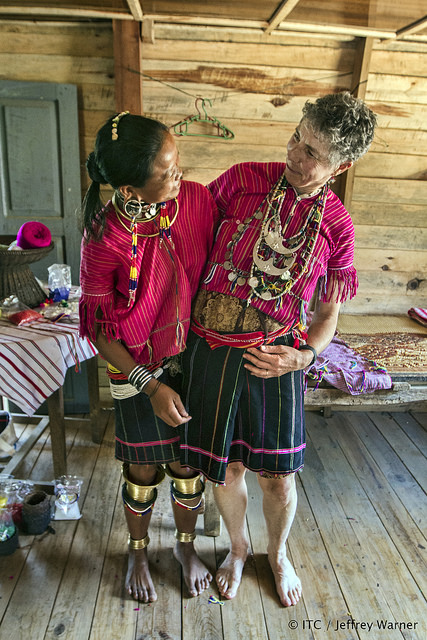
Recently opened and with a diverse ethnic culture and history, Myanmar offers tourism experiences that cannot be found elsewhere. Myanmar’s tourism sector can, if managed correctly, contribute to spur socio-economic progress and support local provision of products and services for sustainable livelihoods.
Nevertheless, the country’s annual increase in international visitor arrivals has slowed down, calling for a diversification of Myanmar’s tourism offer. The industry cannot rely any longer solely on the country’s main tourist attractions (Bagan, Mandalay, Yangon and Inle Lake) and activities. Beyond these known destinations, there are still many authentic places to discover, Kayah state being one of them. Tourism in Kayah State holds great potential for growth, particularly for cultural and eco-tourism. Located south of Inle Lake, it is endowed with pristine nature and cultural diversity. At the same time, it is one of Myanmar’s poorest states.
The Myanmar NTF III project, funded by The Netherlands and implemented between August 2014 and July 2017, addressed the whole tourism value chain by overcoming bottlenecks at each point from product development over market linkages to destination branding, bringing all stakeholders together towards sustainable tourism. One single project that truly connected all players in a sustainable manner with the aim of enhancing Myanmar tourism industry as a way out of poverty.
The NTF III project built skills across the tourism value chain and maximized benefits to local businesses and communities. In four traditional villages ITC helped develop respectful cultural tourism tours, creating jobs and increasing incomes for the ethnic minority residents, who in many cases were post-conflict returnees. Over the project duration (2014-2017) income for Kayah’s SMEs and providers of tourism products and service increased by 83% and jobs supported (formal and informal) by 28%.
Between 2014 and 2017 the number of international tourists in Kayah state grew by about 230% and domestic tourists by almost 200%. Client spending in the state almost quadrupled over the same period. Next to financial indicators, the project is generating important intangible impact, namely facilitating the peace process in Kayah state by enforcing cooperation between all stakeholders, including government authorities, private businesses and local communities.
ITC built capacity on three levels—(1) tourism products and service providers in Kayah state and tour operators in Yangon, (2) tourism sector associations and (3) national and state government enhancing Myanmar’s tourism sector and linking it to international markets.
